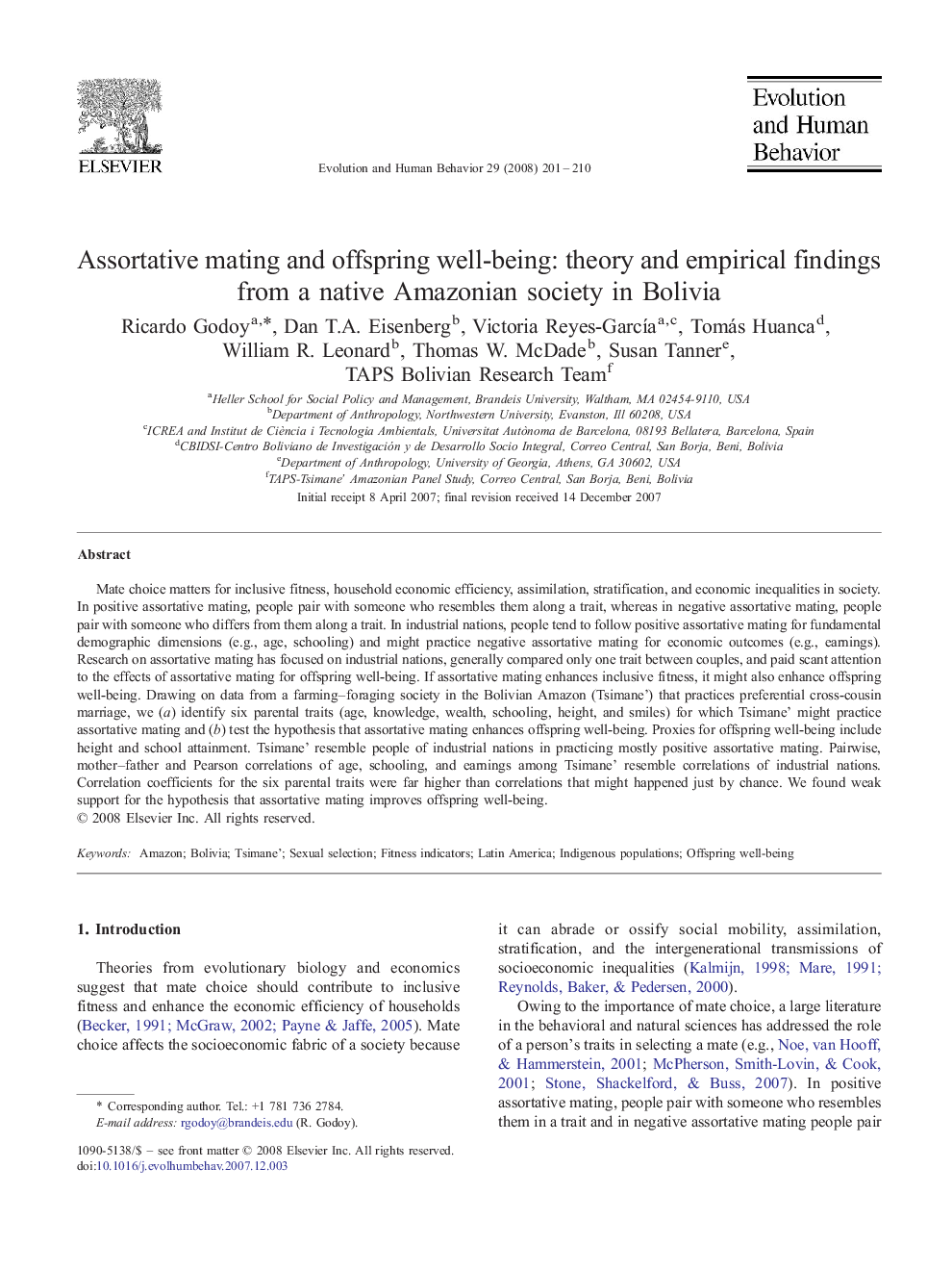| کد مقاله | کد نشریه | سال انتشار | مقاله انگلیسی | نسخه تمام متن |
|---|---|---|---|---|
| 943482 | 925474 | 2008 | 10 صفحه PDF | دانلود رایگان |

Mate choice matters for inclusive fitness, household economic efficiency, assimilation, stratification, and economic inequalities in society. In positive assortative mating, people pair with someone who resembles them along a trait, whereas in negative assortative mating, people pair with someone who differs from them along a trait. In industrial nations, people tend to follow positive assortative mating for fundamental demographic dimensions (e.g., age, schooling) and might practice negative assortative mating for economic outcomes (e.g., earnings). Research on assortative mating has focused on industrial nations, generally compared only one trait between couples, and paid scant attention to the effects of assortative mating for offspring well-being. If assortative mating enhances inclusive fitness, it might also enhance offspring well-being. Drawing on data from a farming–foraging society in the Bolivian Amazon (Tsimane') that practices preferential cross-cousin marriage, we (a) identify six parental traits (age, knowledge, wealth, schooling, height, and smiles) for which Tsimane' might practice assortative mating and (b) test the hypothesis that assortative mating enhances offspring well-being. Proxies for offspring well-being include height and school attainment. Tsimane' resemble people of industrial nations in practicing mostly positive assortative mating. Pairwise, mother–father and Pearson correlations of age, schooling, and earnings among Tsimane' resemble correlations of industrial nations. Correlation coefficients for the six parental traits were far higher than correlations that might happened just by chance. We found weak support for the hypothesis that assortative mating improves offspring well-being.
Journal: Evolution and Human Behavior - Volume 29, Issue 3, May 2008, Pages 201–210